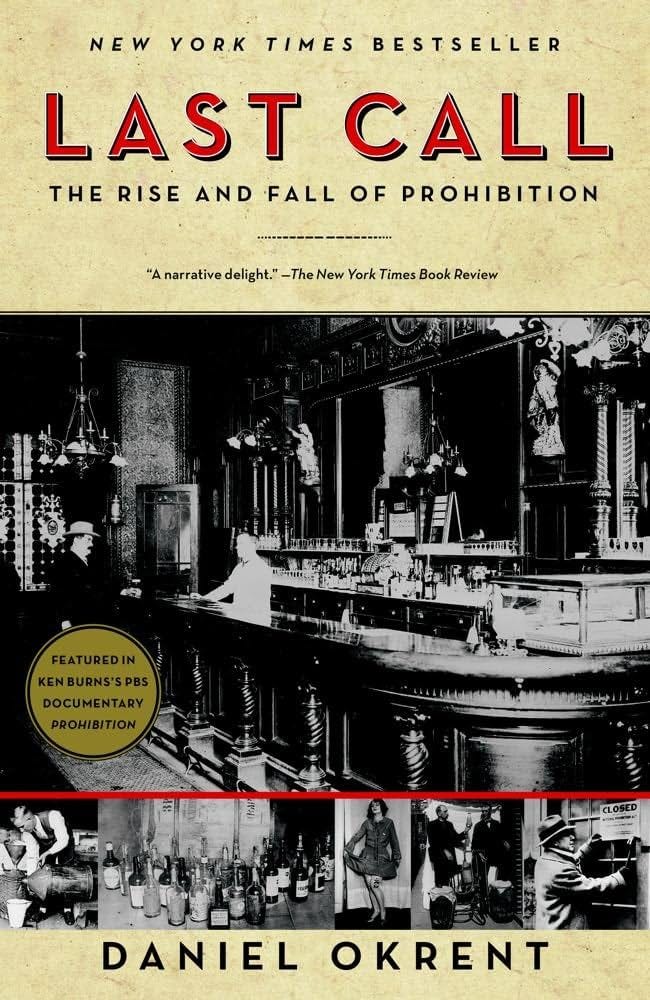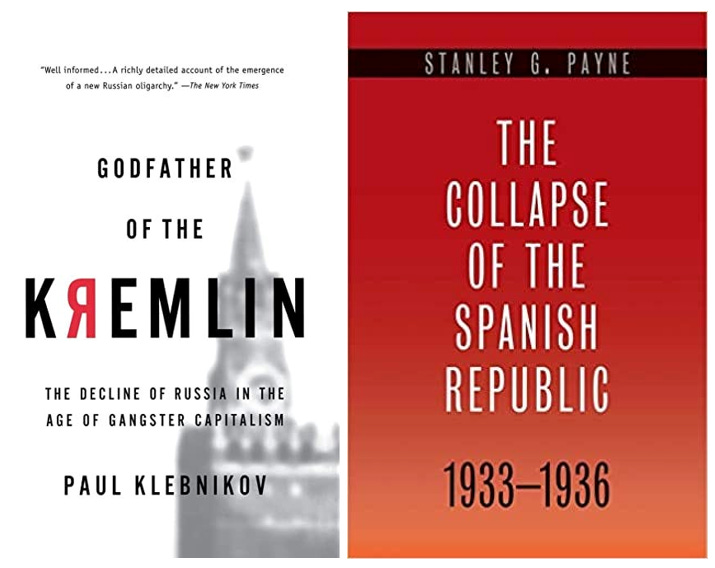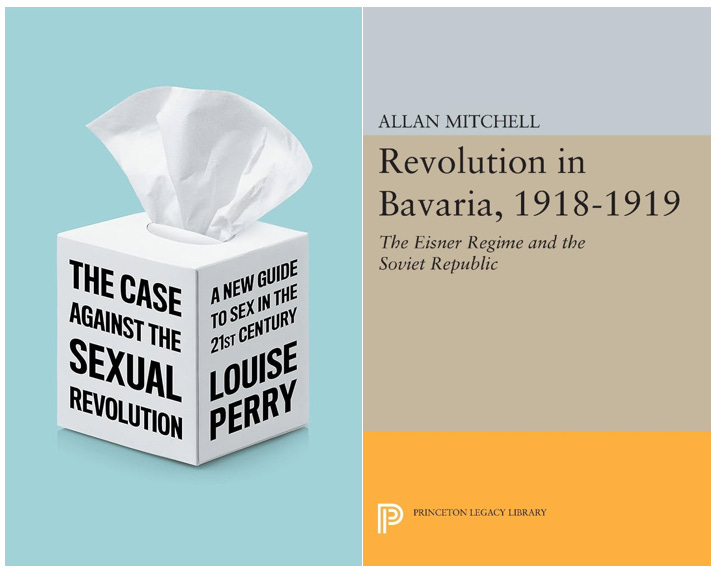Upcoming FbF Book Club - Last Call: The Rise and Fall of Prohibition (2010)
The next entry in the FbF Book Club Series
One of my favourite (and quite possibly my favourite) era of American history is the interwar period between the First and Second World Wars. The United States was quickly rising in terms of global power due to the strength of its economy and the vast resources it was able to exploit. By the end of WW1, the British Empire was heavily indebted to the USA (with many arguing that these debts were the reason for the US entry into that war). The future looked very, very bright for this New World land, far removed from the squabbles of the Old World.
The USA was for decades prior absorbing the massive waves of migration from Europe, with some difficulties in how to manage these new arrivals. In 1924, Ellis Island was shut down, as the Americans decided to try and assimilate people from places like Italy, and what were once the Russian and Austro-Hungarian Empires.
The interplay between these new arrivals, and how they interacted with the already settled Americans, is one of the things that most fascinates me about this era. The 1920s themselves were known as “The Roaring Twenties” due to the economic boom that took place in that first decade of the interwar period. Oddly, enough, a decade that is now known for economic prosperity and a liberalization in social attitudes was paired with Prohibition on the sale and consumption of alcohol. A puritanism stting right next to liberalization is a theme of American culture and history.
I first read Daniel Okrent’s 2010 book “Last Call: The Rise and Fall of Prohibition” over a decade ago and really, really enjoyed it as I learned quite a bit about it. This isn’t just the story of “killjoys” and “bootleggers”, but about an America struggling to come to terms with how it was changing and with how it already had changed. From the link above:
From its start, America has been awash in drink. The sailing vessel that brought John Winthrop to the shores of the New World in 1630 carried more beer than water. By the 1820s, liquor flowed so plentifully it was cheaper than tea. That Americans would ever agree to relinquish their booze was as improbable as it was astonishing.
Yet we did, and Last Call is Daniel Okrent’s dazzling explanation of why we did it, what life under Prohibition was like, and how such an unprecedented degree of government interference in the private lives of Americans changed the country forever.
Writing with both wit and historical acuity, Okrent reveals how Prohibition marked a confluence of diverse forces: the growing political power of the women’s suffrage movement, which allied itself with the antiliquor campaign; the fear of small-town, native-stock Protestants that they were losing control of their country to the immigrants of the large cities; the anti-German sentiment stoked by World War I; and a variety of other unlikely factors, ranging from the rise of the automobile to the advent of the income tax.
Through it all, Americans kept drinking, going to remarkably creative lengths to smuggle, sell, conceal, and convivially (and sometimes fatally) imbibe their favorite intoxicants. Last Call is peopled with vivid characters of an astonishing variety: Susan B. Anthony and Billy Sunday, William Jennings Bryan and bootlegger Sam Bronfman, Pierre S. du Pont and H. L. Mencken, Meyer Lansky and the incredible—if long-forgotten—federal official Mabel Walker Willebrandt, who throughout the twenties was the most powerful woman in the country. (Perhaps most surprising of all is Okrent’s account of Joseph P. Kennedy’s legendary, and long-misunderstood, role in the liquor business.)
It’s a book rich with stories from nearly all parts of the country. Okrent’s narrative runs through smoky Manhattan speakeasies, where relations between the sexes were changed forever; California vineyards busily producing “sacramental” wine; New England fishing communities that gave up fishing for the more lucrative rum-running business; and in Washington, the halls of Congress itself, where politicians who had voted for Prohibition drank openly and without apology.
This book is written in a popular style, which means that it is very accessible to all. The most recent book we covered in this FbF Book Club was much more dry and academic. I can assure all of you that this one will much more resemble the most popular book that we have covered in the FbF Book Club, Edward J. Watts’ 2015 work “The Final Pagan Generation: Rome’s Unexpected Path to Christianity”.
I anticipate a lot of activity from the community here in this upcoming book club as the Prohibition era has something for everyone, whether it be True Crime, religious politics, ethnic politics, colourful characters, and so on.
Anticipated Launch Date: December 14, 2023
Previous FbF Book Club entries can be found at this link which you can find at the top of the main page on this site, and if you scroll to the bottom and hit ‘archive’.
We have done six book clubs so far (with varying degrees of success I must admit).
Prohibition America was a country that was very, very different from the one only a single generation prior to it. It was also being pulled in two different directions. I am confident that participating in this book club will be an excellent exercise to prep everyone for what promises to be an insane year of American politics in 2024.
If you are cash poor at the moment, I can lend you a digital copy of this book (just replyl to this email). Most of you will be able to afford a Kindle/paperback/hardcover (please support the author if you can).
This iteration of the FbF Book Club should take around two months to complete and will be for subscribers only, with the introductory post being available for non-subscribers as well.
If you have any questions, comments, or concerns, hit this button below:
Final Note: I am a bit under the weather, and am trying to complete this weekend’s SCR. Bear with me!









Hit the like button at the top of the page to like this entry. Use the share and/or re-stack buttons to share this across social media. Leave a comment if you have something to say, ask, or demand.
I am under the weather and am trying to get this weekend's SCR completed, but my brain is not at full power (83 IQ).
Niccolo, a book you might want to consider for a future book club is: The Arc of a Covenant: The United States, Israel, and the Fate of the Jewish People by Walter Russell Mead.
https://www.amazon.com/Arc-Covenant-United-States-Israel/dp/0375414045/ref=tmm_hrd_swatch_0?_encoding=UTF8&qid=1701028722&sr=8-1
Mead is a great writer and an innovative thinker. His book provides the historical background for the current war between Israel and Hamas. It focuses on the political and cultural sources of American support for Israel.
Among the things Mead points our are: in its early days Zionism had more support from American gentiles -- Christian Zionists -- than from Jews; Stalin, not Truman, played the vital role in supplying Israel with the weapons it needed to win its War of Independence in 1948; before 1967 the U.S. was cold and somewhat hostile towards Israel, being more interested in forming an alliance with Egypt. To quote Mead: "Israel did not grow strong because it had American support. It acquired American support because it had grown strong."
I hope you feel better. Looking forward to the SCR.